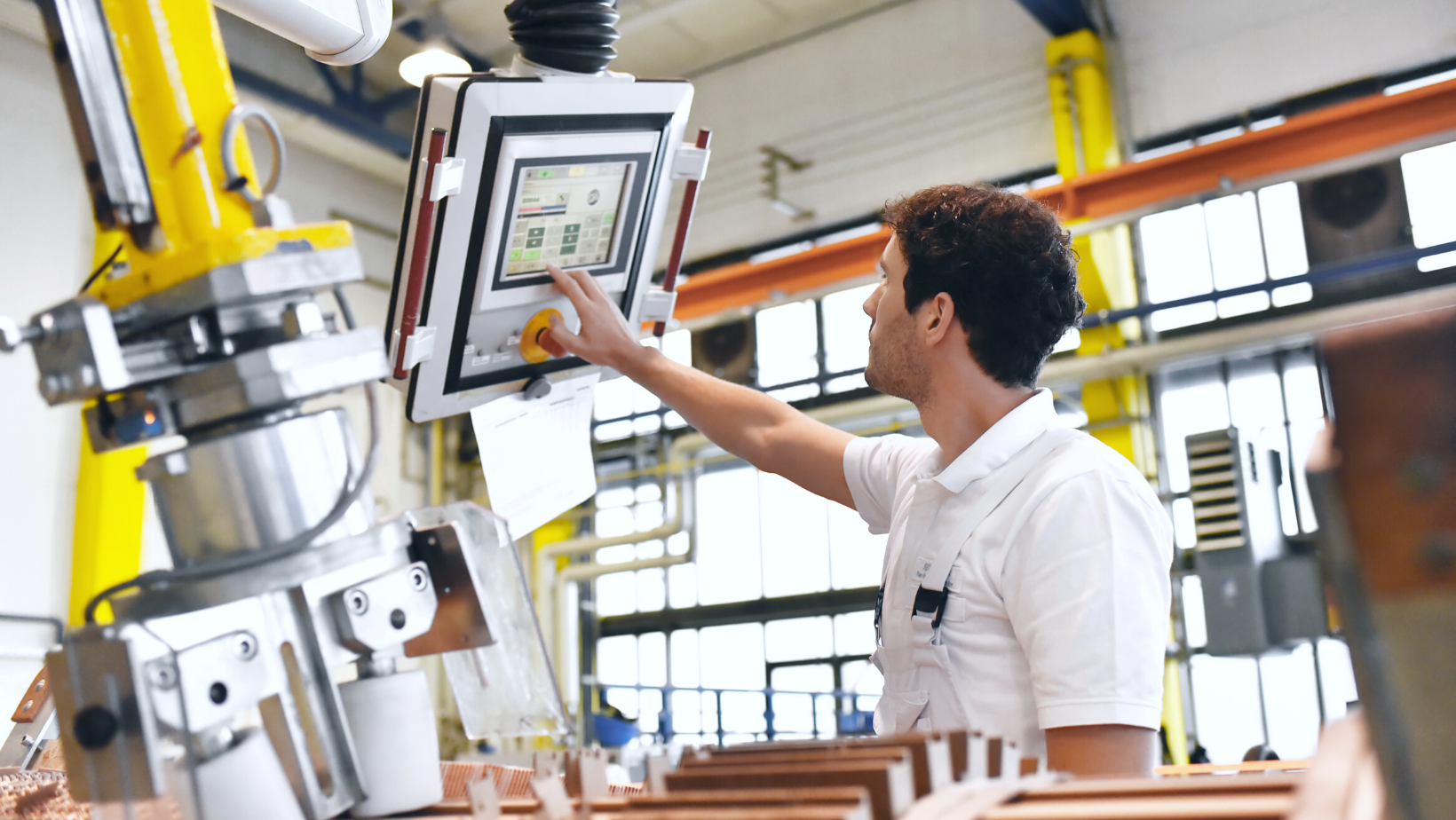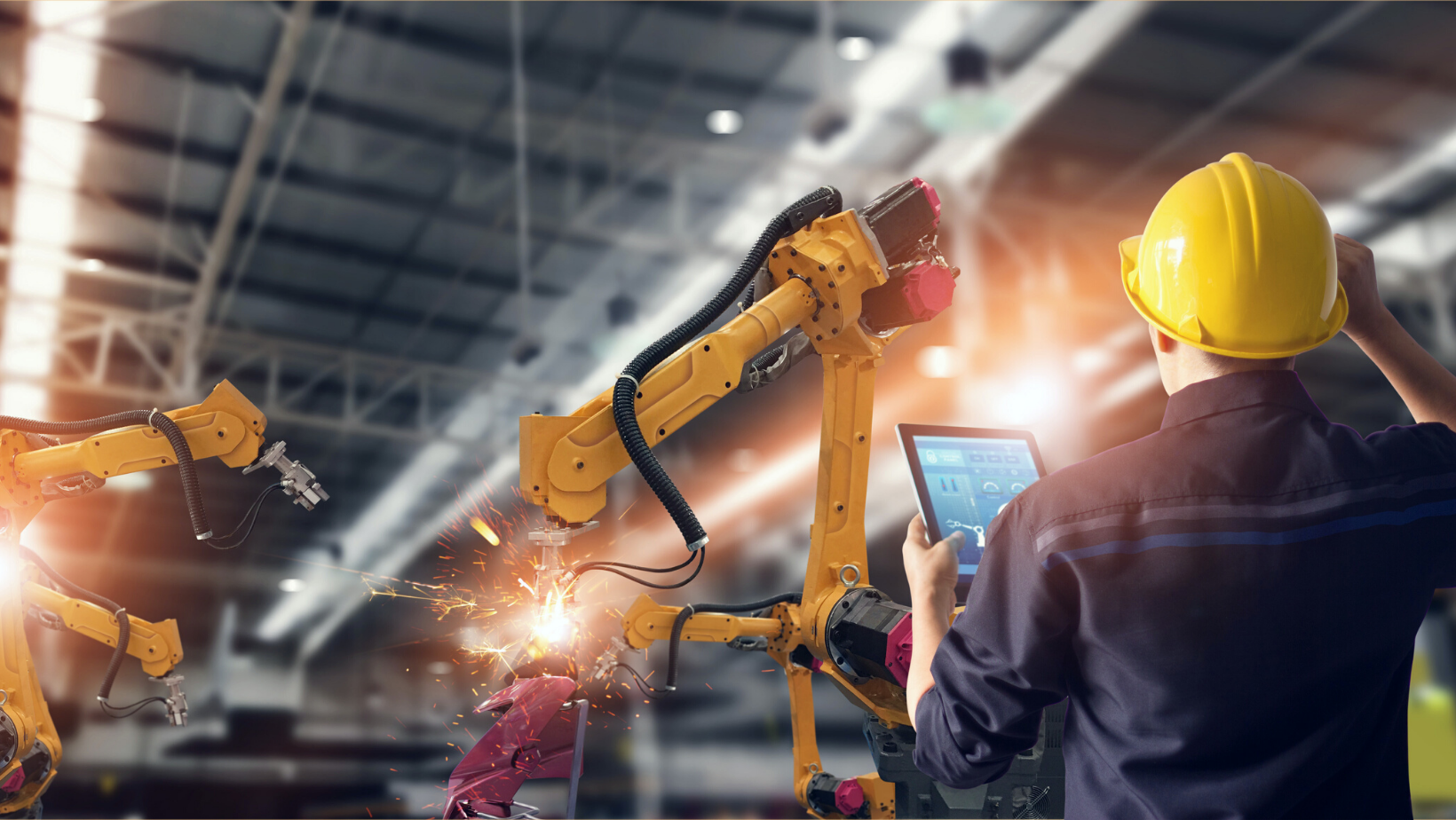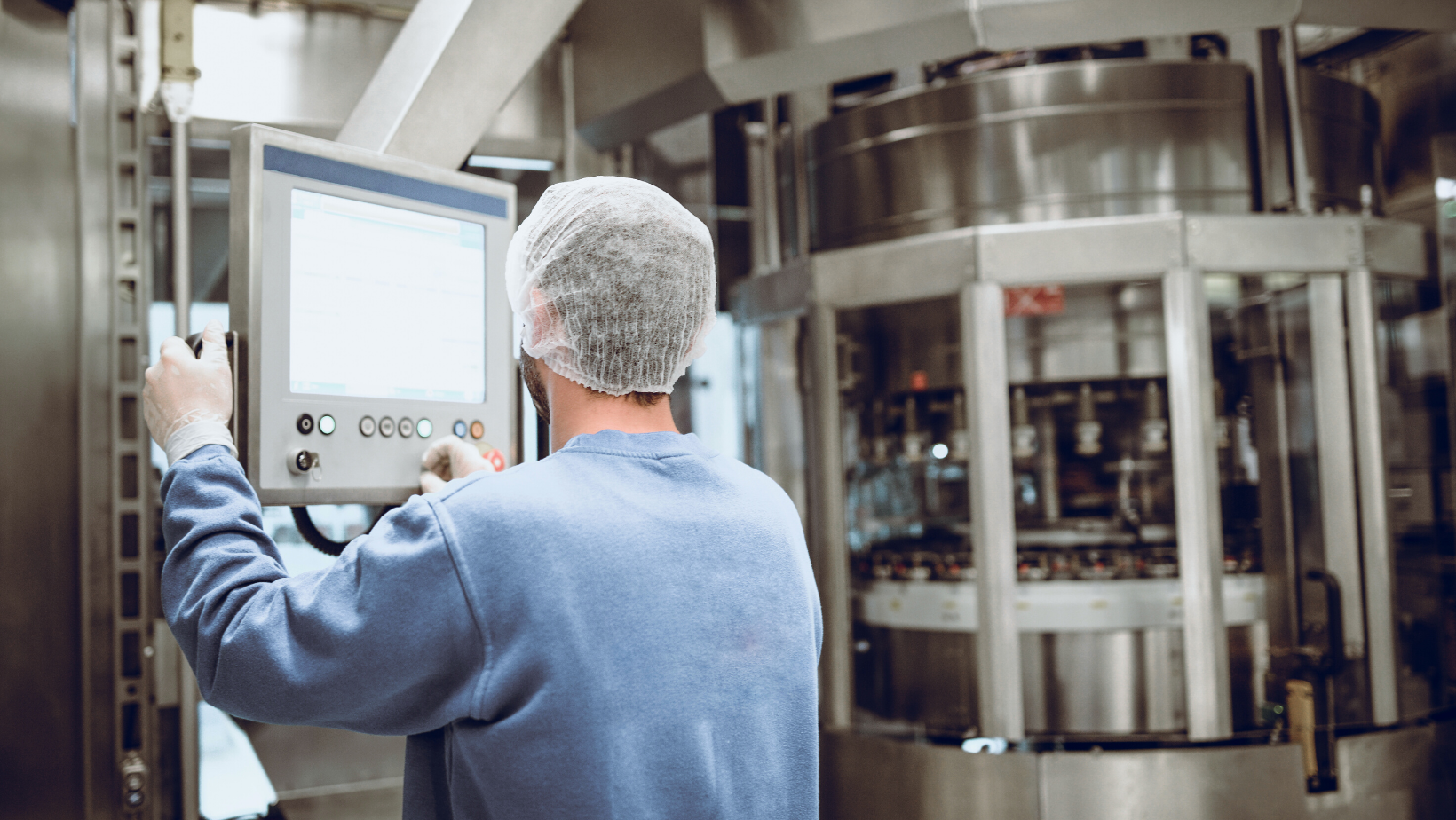How can simple automation aid manufacturing operators?
Even the most simplistic task can be aided through automation. In manufacturing, operators often have to complete repetitive and time-consuming...

The Internet of Things (IoT) is providing a major boost to the automation sector. Industrial automation firms that employ IoT solutions can benefit in several ways as it allows engineers to develop new technologies to tackle issues, improve processes, increase output, and reduce workforce challenges such as high personnel turnover.
The Internet of Things is the connection of inextricably identifiable electronic devices via data plumbing on the Internet, such as IP, cloud computing, and web services and healthcare services. It is fair to mention that the Internet of Things (IoT) has a significant impact on industrial automation, and it motivates us to utilize tablet computers, smartphones, virtualized systems, and cloud storage for data.
On the other hand, Industry 4.0 is the intersection of cyber-physical systems and the Internet of Things (IoT). The IoT includes smart sensors that give managers more accurate information on which they can base their decisions for growth in today's competitive environment - and transitioning into a digital transformation.
The industrial automation sector has started to adopt IoT technologies at a much slower pace as compared to other sectors such as healthcare and retail. However, this is changing now, and industrial automation companies are realizing the benefits of IoT technologies - and .
Let us examine the different ways in how the Internet of Things (IoT) is affecting industrial automation:
The impact of IoT on industrial automation is very positive. The main reason behind this is that the industrial sector has started to adopt IoT technologies at a much slower pace as compared to other sectors such as healthcare and retail. However, this is changing now, and industrial automation companies are realizing the benefits of IoT technologies.
One of the main advantages of IoT for industrial automation is that it helps engineers develop new technologies to tackle issues, improve processes, and increase output.
For example, if there is a problem with a machine, engineers can use data from sensors on that machine to diagnose the issue and fix it immediately. In addition, by using data analytics, firms can get insights into how their processes are performing and make changes accordingly.
IoT is also helping industrial automation companies to move from a product-oriented business model to a service-oriented model. In fact, by offering services such as data analytics and remote monitoring, which help improve the overall customer experience, firms can generate more revenue from their existing products.
Many industrial automation companies in today's world are also moving towards a service-oriented business model because they can invest heavily in new technology and equipment to produce goods for their customers. With the help of IoT, engineers can use smartphones, tablets, and other devices to monitor the status of the machines and get alerts when there is an issue.
For example, if you own a factory or machine shop where robots work 24 hours a day, 7 days a week, you would need people to monitor these systems constantly and address any issues that arise immediately. However, this can be time-consuming and expensive because you would require at least one person per shift to watch over these systems all day long.
With IoT for industrial automation, companies can use smart sensors and devices to monitor and integrate machines and enable operators to receive alerts when there is an issue. This will help companies shift their focus from monitoring machines to servicing them, which will save them time and money.
Another advantage of IoT for industrial automation is that it allows companies to make process improvements quickly and easily. By collecting data from different machines, companies can analyze how well their processes are performing. In addition, they can also identify areas where they can improve efficiency.
For example, if a company wants to increase the output of a particular machine, they can study the data collected by sensors on that machine and try to identify the root cause of any issues. Once the root cause is identified, they can make changes to improve production.
IoT helps make process improvements by providing engineers with more visibility and control over their operations. When extended across warehousing, logistics, and fulfillment, these insights drive smarter supply chain automation—streamlining operations from production to delivery. These benefits can help companies achieve operational excellence and increase their competitiveness.
The Internet of Things (IoT) has had a huge impact on simple automation because it is helping companies develop new technologies that will make the operating environment much safer for the people working there.
For example, if a company uses robots or automated machines in its factory (equiped with HMIs, for example), IoT can be used to monitor those systems and determine whether they are working as expected. In addition, IoT sensors on machines can detect areas where safety measures need improvement and alert managers about potential hazards before they even occur. This will enable companies to make changes to their safety protocols and improve the safety of their workers, including cyber-security safety measures.
Along with making the operating environment safer, IoT is also helping industrial automation companies protect the environment. By collecting data from different machines, companies can monitor how much energy they are using and identify areas where they can reduce their energy consumption. In addition, they can also develop strategies to recycle or reuse materials more efficiently.
For example, if a company wants to reduce its environmental impact, it can use data analytics to study the amount of energy it consumes and find ways to reduce that consumption. In addition, it can also look for ways to recycle or reuse materials instead of sending them to a landfill.
IoT for industrial automation is helping companies become more efficient and environmentally responsible, which will help them stay competitive in the future.
Another advantage of IoT for industrial automation is that it allows firms to work in a more open and collaborative manner. Using IoT technologies, engineers can work with vendors and customers from across the world to implement new services and increase performance without facing any issues.
For example, using cloud-based services, an engineering team can access data from machines such as wind turbines located thousands of miles away for performing predictive maintenance.
In addition, by leveraging the power of IoT solutions and end-to-end automation, manufacturers can also reduce downtime due to product recalls. In fact, by analyzing the real-time data coming from parts used in manufacturing machines such as cars or medical equipment, companies can easily identify when a particular part is defective and initiate a recall process immediately.
The industrial automation industry has started exploring the benefits of the IoT and is expected to grow significantly in the coming years. By implementing IoT technologies, firms can improve their efficiency, reduce costs, and offer new services that will delight their customers. This same real-time visibility also helps companies minimize machine downtime by identifying performance issues early and enabling faster corrective action before production halts.
Nevatio Engineering is a full-service automation and controls services provider. Our team of engineers has extensive experience with industrial control systems, process control systems, machine retrofit systems, robotics, and much more.
You don’t have time to waste on projects that go over budget or fail to meet expectations. That’s why our clients choose us again and again – because they know they can trust us to deliver exactly what they need at the right price every single time! If you want a partner who will work closely with you throughout your project lifecycle, then give us a call today!
What is Industrial AI and Why Does It Matter to Process Manufacturers? - Lets take a closer look at what you need to know about Industrial AI, including industry 4.0, IoT, machine integration, and automated traceability.
Nevatio Engineering is an agile design and engineering consulting team capable of on-demand mechanical and electrical engineering, functional prototyping, engineering documentation, and machine retrofits. We are experts in machine design, special devices, industrial products, jigs and fixtures, plus automation and controls. Our added knowledge in industry design standards such as ASME, ANSI, ISO, NFPA, NEC and BS allows us to quickly integrate our services with your existing standard design processes, keeping your resources free from unnecessary rework.
We specialize in helping industry leaders solve difficult engineering and design problems. Our mission is to empower our clients with the tools and skills necessary to create solutions to their technical problems. With our expertise, clients can address any technical design problems that stand in their way.
We believe in being consistent with our deliveries. This means that we are always on time and able to work for your business needs, no matter what they may be.

Even the most simplistic task can be aided through automation. In manufacturing, operators often have to complete repetitive and time-consuming...

Having industrial automation is a necessity, but there's a lot of gray area when it comes to calculating the benefits. And part of that gray area is...

As industries move towards the fourth industrial revolution, more and more emphasis is being put on machine-to-machine (M2M) integration. This refers...